IMU News 116: November 2022
A Bimonthly Email Newsletter from the International Mathematical Union (pdf)
Editor: Yoshiharu Kohayakawa, Universidade de São Paulo, Brazil
Editorial
This editorial will be the last one that we write in our respective capacities as IMU President and IMU Secretary-General. At the end of this year, our terms will come to an end, and Hiraku Nakajima and Christoph Sorger will have the privilege of taking over our positions for the next term.
No one knows what waits ahead, and we are surely no exception to that rule. A journalist once asked former British Prime Minister Harold Macmillan to identify the greatest challenge to his administration, and he replied: “Events, my dear boy, events”. The same applies to us.
Two dramatic global events happened during our term. The first one was the COVID-19 pandemic. While the World Health Organization had long warned the world about the risk of such a global health emergency, it is safe to say that – with few exceptions – the world was rather unprepared at the outbreak of the pandemic in early 2020. The pandemic showed the vital importance of basic science and research, and the exceptionally fast development of effective vaccines was unprecedented. Mathematical models were critical tools for governments and health authorities in their attempts to predict the development of the pandemic. It also showed that humans can quickly adapt to new conditions and change their behavior in ways that were impossible to predict beforehand. Nevertheless, families were deeply affected, millions of people died, and many small and medium-sized companies folded. Also, the academic community had to adapt significantly and at speed. Overnight we had to get used to home office, remote teaching, and collaboration by distance, with traveling coming to a complete halt.
The IMU was severely affected by the pandemic. Our extensive program to support mathematicians in developing countries was all but suspended due to the restrictions on travel. Several of the annual meetings of the IMU Executive Committee (EC) had to take place virtually, and while we were able to ensure that the responsibilities of our remit were fulfilled, we truly missed the informal discussions during coffee breaks or over dinners, and realized just how important these are for the quality of the decisions as well as quality of life in general. We are of course not unique in experiencing this and are sure that many have come to the same realization. Now that we are slowly emerging from the consequences of the pandemic, we see the great enthusiasm we and our colleagues display when we can finally meet again and discuss mathematics.
The second event of global consequence was the Russian invasion of Ukraine in February 2022. It has, as all wars, terrible human consequences. It also affected the IMU in a very direct and profound way, as we had planned to host the meeting of the General Assembly and the International Congress of Mathematicians in Saint Petersburg, Russia, in the summer of 2022. At short notice, and with no resources, the IMU had to change its plans radically, with the General Assembly meeting in Helsinki, Finland, and the ICM being turned into a fully virtual event. Since we have described this in earlier Editorials in IMU News (see Issues 112, 113, and 114 from March, May, and July 2022), we will not add any further details here.
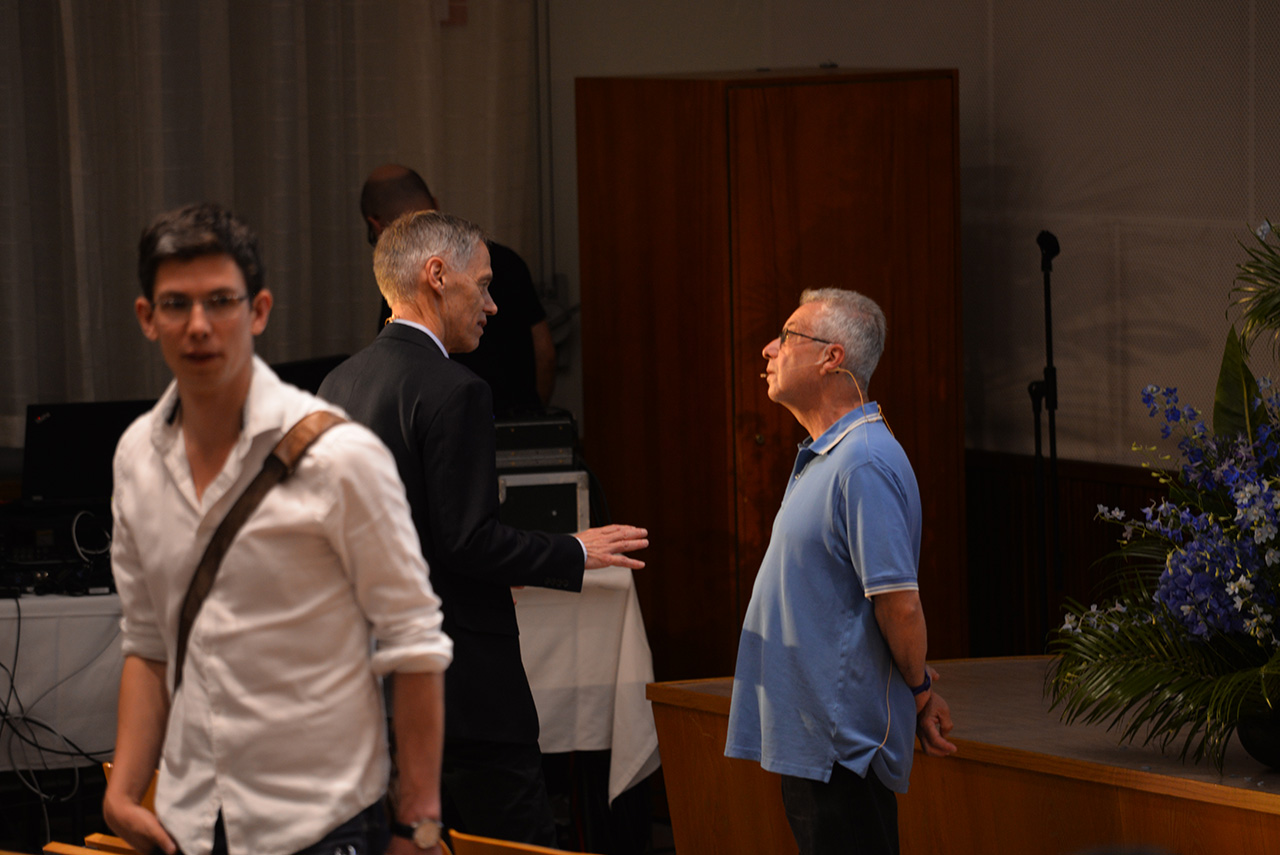
Apart from the two major global events described above, we have, together with the IMU EC and the IMU Commissions and Committees, tried to develop the IMU further. Let us mention a few initiatives.
In previous years, the Program Committee for the ICM had the formidable task of deciding both the scientific program as well as selecting the 200+ speakers for the ICM. That made it hard to spend sufficient time on a careful consideration of the structure of an ICM. Thus the 2018 General Assembly decided to introduce an ICM Structure Committee charged with the task of proposing to the IMU EC specifics about the sections of the ICM (content and size), and additional activities. For ICM 2022, the committee suggested the introduction of Special Plenary and Sectional Lectures, with assigned topics. These were very well received by the community.
There is an increased focus globally on diversity, and the IMU decided to respond swiftly to this challenge by creating an ad-hoc Committee on Diversity, with the task of providing recommendations to the IMU and our members on how to improve our performance in this regard.
During our term, UNESCO declared March 14 as the International Day of Mathematics. With thousands of local activities taking place worldwide under new mottos every year, it allows the IMU to reach out to communities outside that of research mathematicians.
In 2018 the cooperation agreement between the IMU and the Weierstrass Institute for Applied Analysis and Stochastics (WIAS) was made permanent. This secures the running of the IMU Secretariat in Berlin, Germany, for an unlimited period. At the same time, the IMU Secretariat moved to refurbished premises, with a 10-year lease currently in place.
In 2020, the IMU could celebrate its centennial by hosting a conference in Strasbourg, France, at the same venue where the IMU was founded (albeit belated by one year due to the pandemic), and by the publication of a monograph on the history of the IMU. In contrast to the early years of the Union, the IMU is now a truly global organization with close to 90 countries as members. For the first time the EC has members from all continents, and in February 2020, the EC met for the first time in Africa. This was certainly long overdue, with almost 100 EC meetings to date.
It is a reality that some of our members face problems paying their membership dues. The 2022 General Assembly therefore decided to create an IMU Reserve Fund that, thanks to donations from IMU members and other third-party benefactors, can help cover the membership dues of countries in temporary dire financial situations.
Although it cannot be considered an objective assessment, we think that the IMU is well prepared for the years to come.
Berlin, 14 November 2022
Carlos E. Kenig Helge Holden
IMU President IMU Secretary General
News from the Commission for Developing Countries (CDC)
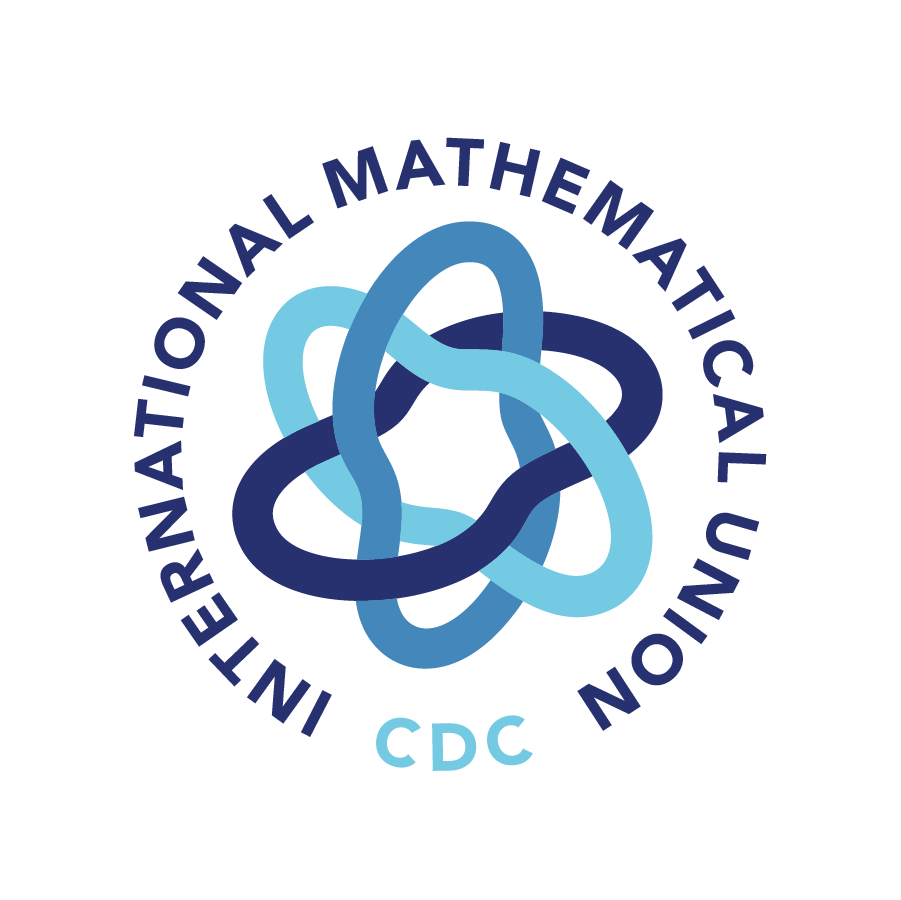 Volunteer Lecturer Program (VLP). IMU-CDC encourages applications from institutions in developing countries to the VLP and the Virtual VLP by March 15, 2023, for courses to be held between July 1, 2023, and July 1, 2025.
Volunteer Lecturer Program (VLP). IMU-CDC encourages applications from institutions in developing countries to the VLP and the Virtual VLP by March 15, 2023, for courses to be held between July 1, 2023, and July 1, 2025.
The IMU-CDC Volunteer Lecturer Program is a program to foster international cooperation by offering financial assistance to universities in developing countries to host a volunteer lecturer for a 3-4-week intensive course. The strand Virtual Volunteer Lecturer Program (VVLP) aims to support lectures to take place remotely. In the case of lectures developed partially online and partially in-person, the host institution has to apply to the VLP.
Funding can cover the expenses of the Volunteer Lecturer up to €4,400 in the case of in-person teaching. Additionally, in both cases, the grant can support preparation of course material (printing, photocopying, books) up to €1,000 and possible expenses for the acquisition of material or use of services to conduct lectures entirely or partially in the online format up to €2,000.
The course given by the volunteer should be part of a regular mathematics undergraduate or master’s degree program at the hosting university, in subjects where the applicant university could have a lack of expertise. Only host institutions can apply for the grant in the VLP. This program is partially funded by the American Mathematical Society and the Niels Henrik Abel Board.
We recommend consulting the details and subsequent deadlines on this page.
Open calls at ICTP. The Abdus Salam International Centre for Theoretical Physics and its Mathematics Section are now admitting applications to the following programs:
- ICTP's one-year Postgraduate Diploma Program helps students from disadvantaged countries gain the knowledge and study skills they need to pursue PhD degrees anywhere in the world. Over the years, more than 1000 students from 78 countries have benefitted from this program, and have gone on to do PhDs at prestigious universities. Applications for the 2023-2024 Diploma Program are now being accepted; the deadline is 28 February 2023. For more details, visit this page.
- ICTP's Mathematics Section is now accepting applications for Postdoctoral Fellowships starting in September 2023. The application deadline is 10 December 2022. For more details, visit this page.
- ICTP is now accepting applications for its Associateship Scheme Program. This scheme covers travel costs and provides a living allowance for developing world scientists to visit ICTP several times over a six-year period. The application deadline is 31 January 2023. For more details, visit this page.
News from the Committee for Women in Mathematics (CWM)
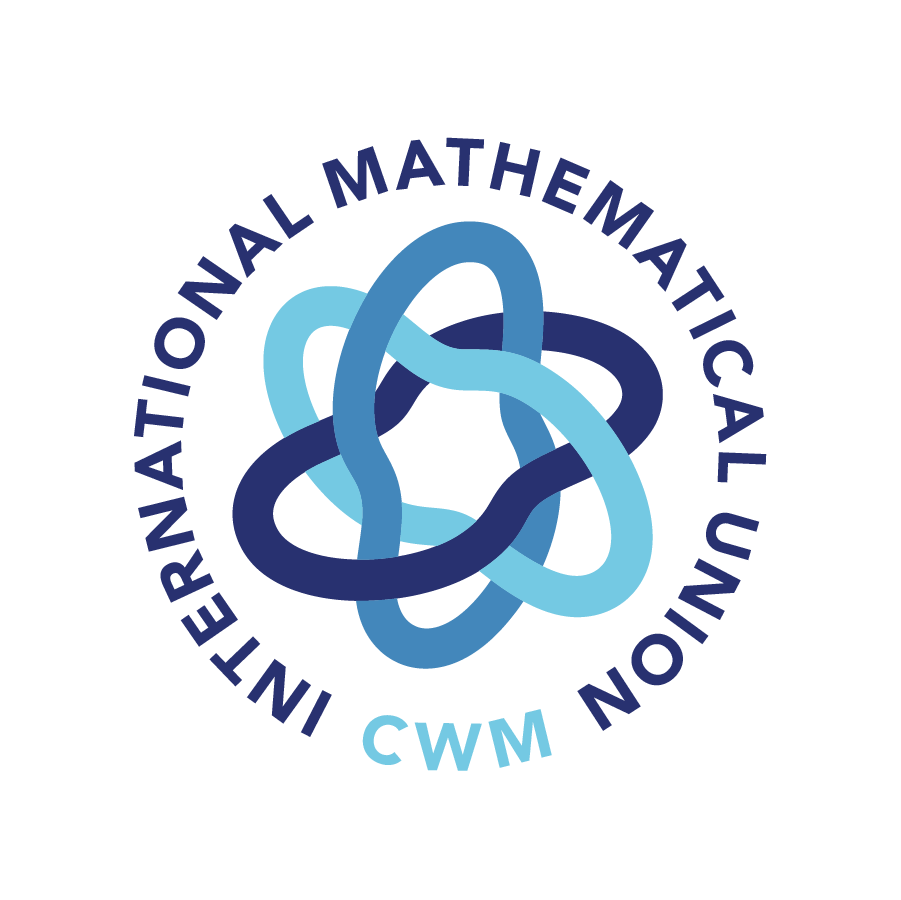 CWM funding call for 2023. Applications should be sent before 23 December 2022 to applications-for-cwm@mathunion.org and should be aimed at either
CWM funding call for 2023. Applications should be sent before 23 December 2022 to applications-for-cwm@mathunion.org and should be aimed at either
- Establishing or supporting networks for women in mathematics preferably at the continental or regional level,
- Organizing research workshops geared towards establishing research networks for women by fostering research collaborations during the event, or
- Other ideas for researching and/or addressing issues encountered by women in mathematics.
The application must be written in English. Further details are given in this document.
2023–2026 CWM members. The IMU Executive Committee selected the following members for the CWM for the term 1 January 2023 to 31 December 2026:
- Carolina Araujo, IMPA, Rio de Janeiro, Brazil, Chair
- Hélène Barcelo, MSRI, Berkeley, USA, Vice-Chair
- U.K. Anandavardhanan, IIT Bombay, India
- Tony Ezome, USTM, Franceville, Gabon
- Catherine Greenhill, University of New South Wales, Sydney, Australia
- Motoko Kotani, Tohoku University, Sendai, Japan
- Matilde Lalín, Université de Montréal, Canada
- Selma Negzaoui, University of Monastir, Tunisia
- Ekin Ozman, Bogazici University, Istanbul, Turkey
- Carola-Bibiane Schönlieb, University of Cambridge, UK
Moreover the IMU EC liaison with CWM will be Hiraku Nakajima, Tokyo University, Japan.
SCGES second annual report on gender equality in science. SCGES, the Standing Committee for Gender Equality in Science, was established in September 2020, with the IMU and ICIAM among its nine founding members. Eleven new International Science Council members joined SCGES since then. The second annual report of SCGES is available online.
Marie-Françoise Roy and Carolina Araujo
Chair and Vice-Chair of the IMU Committee for Women in Mathematics
News of the International Day of Mathematics (IDM)
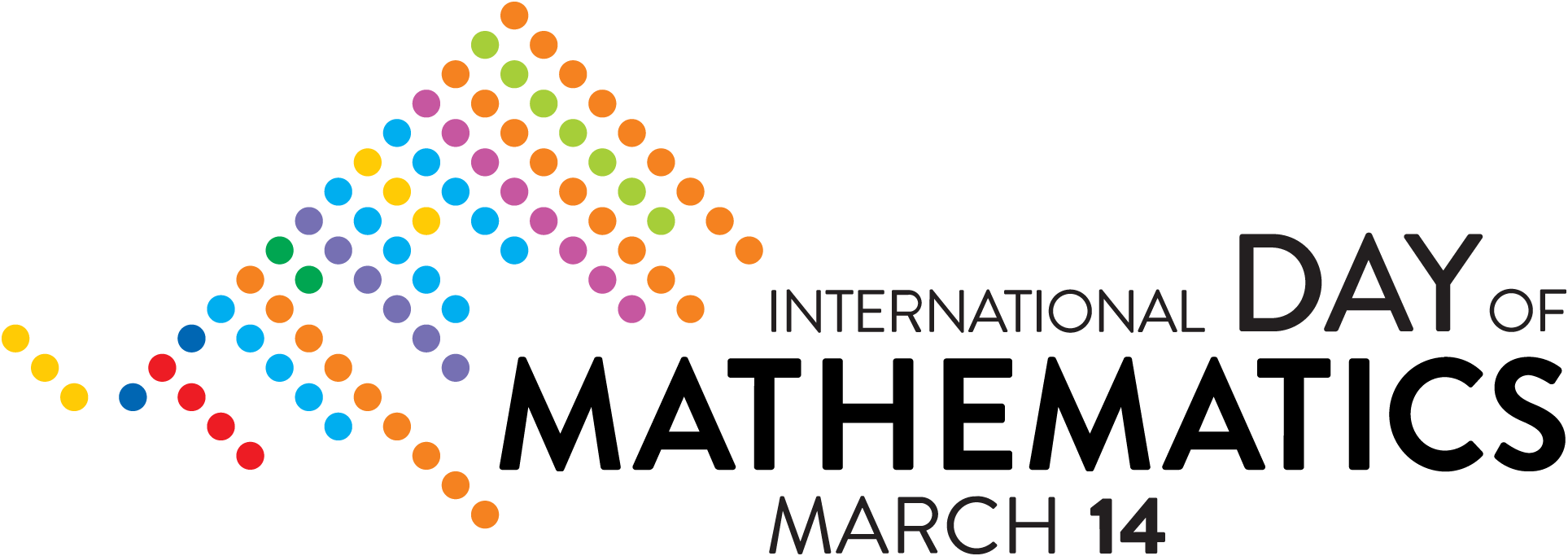 The theme for the 2023 International Day of Mathematics is Mathematics for Everyone.
The theme for the 2023 International Day of Mathematics is Mathematics for Everyone.
Here are some gender inclusive translations of the theme in some languages. More to come on the website:
- Arabic: الرياضيات للجميع
- French: Mathématiques pour tout le monde
- German: Mathematik für alle
- Portuguese: Matemática para toda a gente
- Spanish: Matemáticas para toda la gente
Preparations for the next IDM celebration, on March 14, 2023, are underway and will include the following items:
- The opening of the event world map in December 2022
- The announcement of a new global challenge in January 2023
- A new activity on street math in our section “Organize an Event”
- A list of projects on the theme “Mathematics for Everyone”
- An IDM teacher training program in Mozambique supported by the Simons Foundation
Please subscribe to the IDM Newsletter to receive all ongoing announcements about the celebration and the launch of the new activities. And help us to spread the word and motivate all to jointly celebrate mathematics on March 14, 2023!
And feel free to contact us at info@idm314.org.
Christiane Rousseau
Chair of the IDM Governing Board
The 10th Heidelberg Laureate Forum
The 10th Heidelberg Laureate Forum (HLF) will take place in Heidelberg, Germany, 24 to 29 September 2023.
At the HLF, all winners of the Fields Medal, the Abel Prize, the ACM A.M. Turing Award, the Nevanlinna Prize/IMU Abacus Medal, and the ACM Prize in Computing are invited to attend. In addition, young and talented computer scientists and mathematicians are invited to apply for participation. Over the course of the week-long conference, young researchers will be given the exclusive possibility to connect with their scientific role models and find out how the laureates made it to the top of their fields.
Applications for participation at the 10th HLF are open in three categories: Undergraduate/Pre-Master, Graduate PhD, and PostDocs. The application period for the 10th HLF runs from 11 November 2022 to 11 February 2023.
For more information, visit the HLF website.
New Newsletter “Math and Data Quarterly”
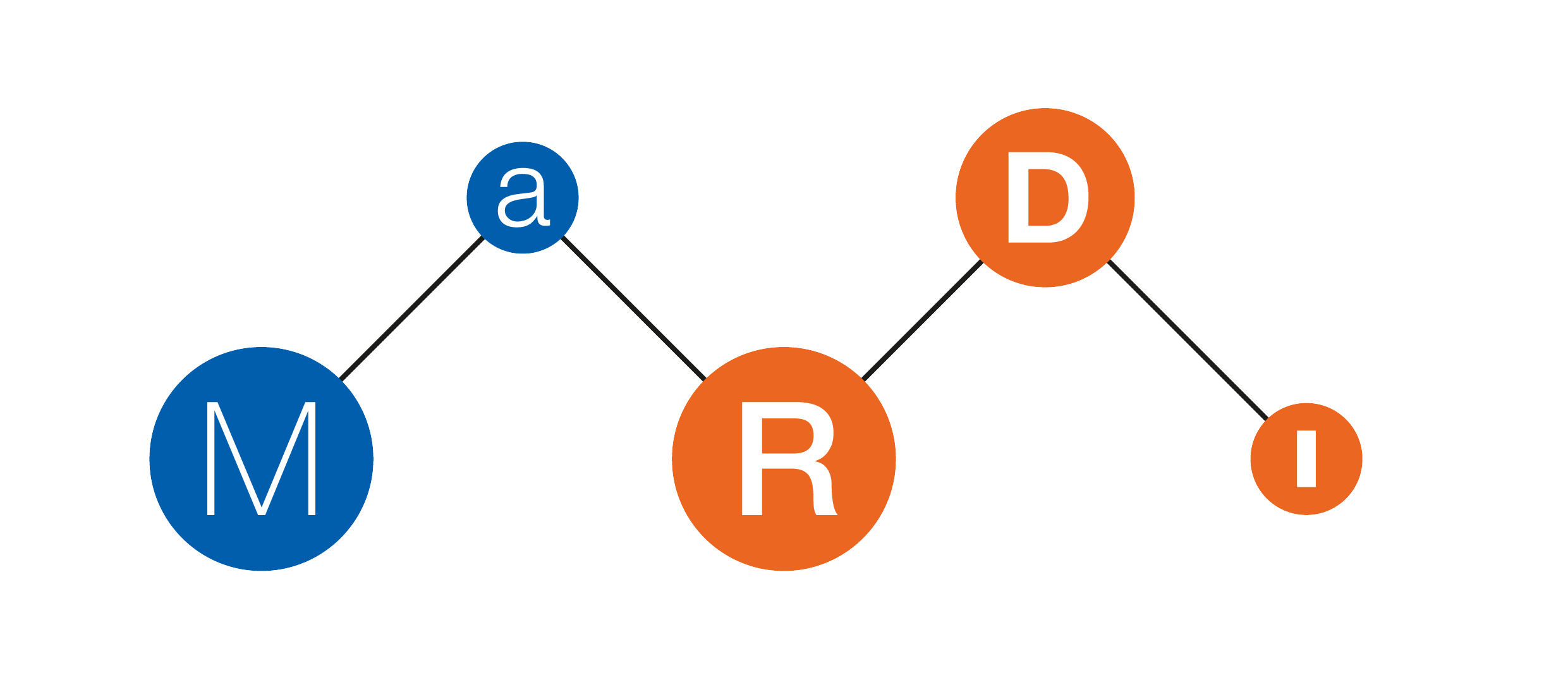 Research data in mathematics comes in many flavors: papers, formulae, theorems, code, scripts, notebooks, software, models, simulated and experimental datasets, libraries of math objects with properties of interest... In short, the list is as long as mathematical research is diverse.
Research data in mathematics comes in many flavors: papers, formulae, theorems, code, scripts, notebooks, software, models, simulated and experimental datasets, libraries of math objects with properties of interest... In short, the list is as long as mathematical research is diverse.
Unfortunately, there is no straightforward or standard way to make these digital objects available for researchers. In an ideal world, mathematical research data would be FAIR: Findable, Accessible, Interoperable, and Reusable.
The MaRDI consortium is a part of the German National Research Data Infrastructure (NFDI), and it is dedicated to building infrastructures to make mathematical research data FAIR. The work on solutions for some of the major problems we face today started last year; from understanding the state-of-the-art technology of a field all the way along the research pipeline to establishing standards for peer review. As part of this process, we need to engage you, as members of the mathematics community, early on.
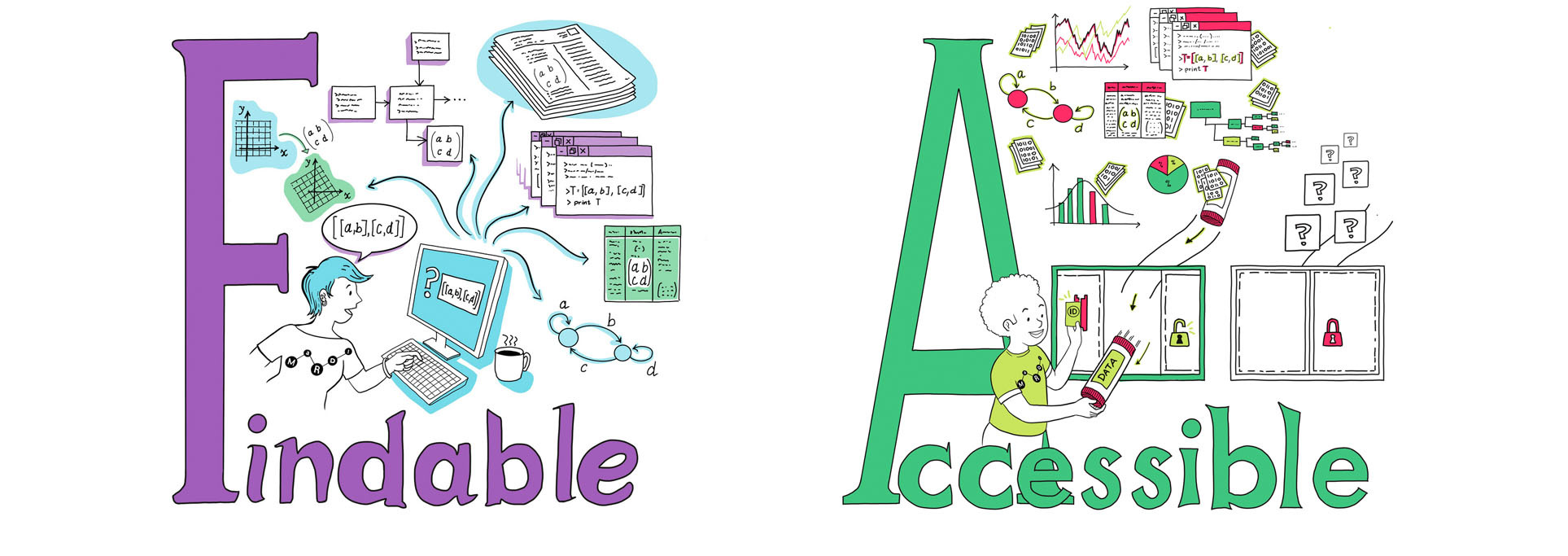
Get in touch with us via our community help desk for questions and requests, and have a look at the list of our upcoming online and physical workshops!
Minutes from the 19th IMU General Assembly
The minutes from the 19th IMU General Assembly, held over 3–4 July 2022, in Helsinki, Finland, have now been uploaded to the GA webpage.
The minutes have been approved by the IMU Executive Committee and the GA Delegates.
Subscribing to IMU News
To subscribe to IMU News, please click here. When you subscribe, you will receive an e-mail message to confirm your subscription so that misuse will be minimized.
IMU will not use the list of IMU News emails for any purpose other than sending IMU News, and will not make it available to others.
Previous issues can be seen here.